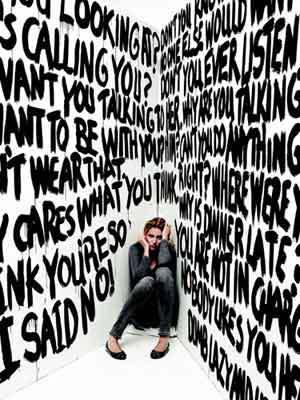
Emotionally abusive relationships

Arguments in which people occasionally say hurtful things to one another are a normal part of many relationships. Psychological abuse is something different. It’s a pattern of coercive or controlling behaviour which can include some of the following features:-
- Your partner is consistently dismissive of your thoughts and feelings and tells you that you don’t have the right to express them.
- You’re punished if you express your views.
- Your partner always makes you into the guilty party and won’t take any responsibility. There’s no compromise - you always have to give in.
- He/she physically tries to prevent you from disengaging from an argument. You feel you need to concede to prevent the abuse from escalating.
- Your partner says things to you in front of others in order to humiliate you.
If your partner continually dismisses your thoughts and blames you for the abuse, you may well start to question your own judgement and even your own sanity. It can feel as though you and your partner have completely different narratives about the nature of the relationship and if this is the case, how can you be sure that your version is correct? This, together with the attacks on your self-worth, can make it difficult to challenge the abuse and/or leave the relationship.
It's important to take the right approach to abuse within therapy. Spending too much time thinking about your responsiblity for the arguments can sometimes stop you from looking at what’s actually going on in the relationship. You might think it's letting yourself of the hook if you don't scrutinise your part in the arguments. Even if you do think the relationship is abusive, your next question may be “what’s wrong with me that I put up with abuse?”. This can be another way of undermining yourself.
Therapy needs to take the concrete circumstances you find yourself in seriously, not just your own psychological processes. It explores the moment to moment experience of being in your relationship so you can form a clearer view of what’s happening. And rather than focusing on what’s wrong with you (which an abusive partner is likely to encourage), good therapy can help you discover or re-discover how you are in the world and how you want to be. For example it may look at what’s important to you, what you like doing, where your strengths lie.
These conversations can give you a sense of what you need and what is acceptable/ unacceptable to you and whether you want to leave or stay with your partner. However, all this must happen at your pace. It’s for you, not the therapist, to decide what decisions to make about your relationship.